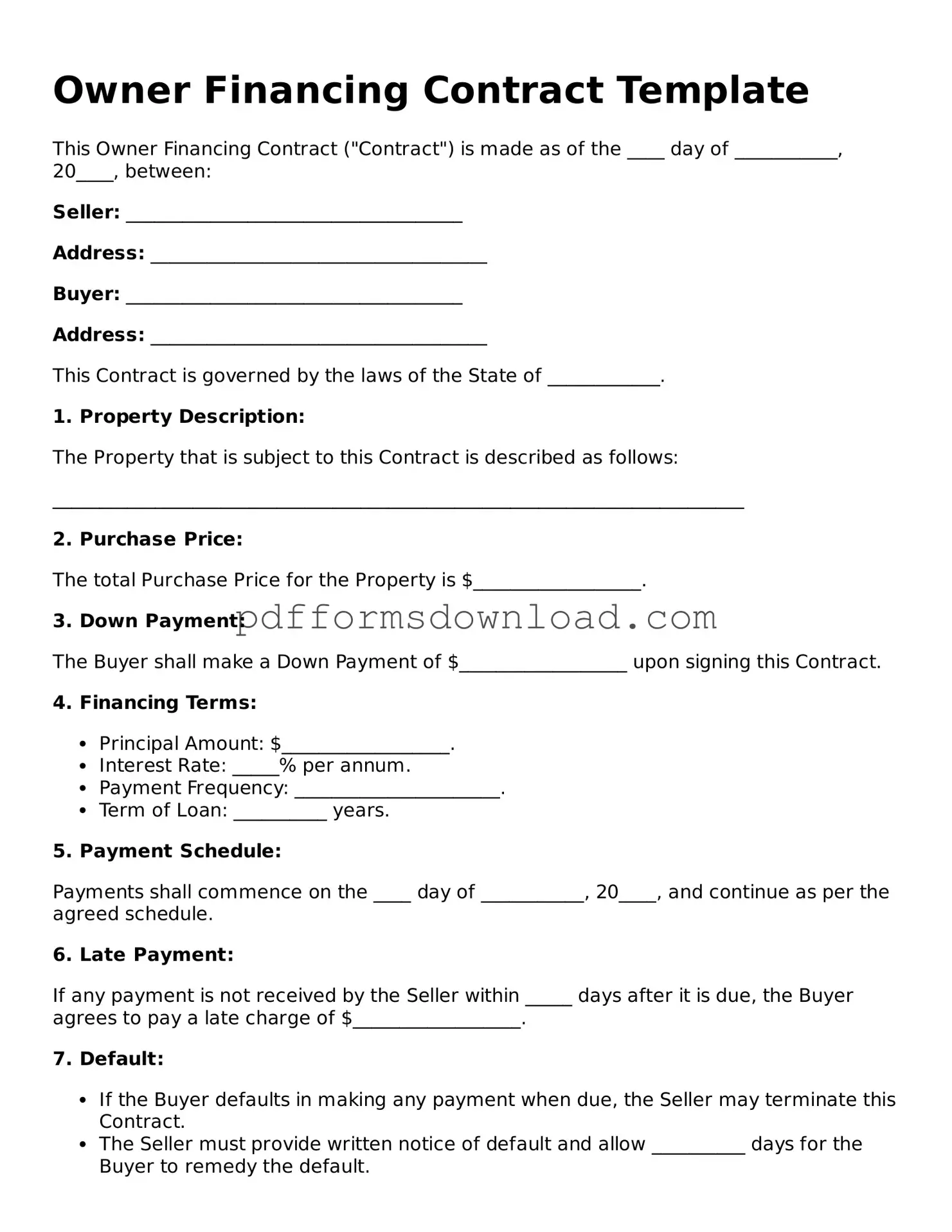What is an Owner Financing Contract?
An Owner Financing Contract is an agreement between a seller and a buyer where the seller provides financing to the buyer to purchase the property. Instead of the buyer obtaining a traditional mortgage from a bank, the seller allows the buyer to make payments directly to them over time. This can make purchasing a home more accessible for buyers who may have difficulty securing conventional financing.
What are the benefits of using an Owner Financing Contract?
One of the main benefits is flexibility. Sellers can negotiate terms that suit both parties, such as the interest rate, down payment, and repayment schedule. For buyers, it can provide an opportunity to purchase a home without going through a bank. Additionally, sellers may find it easier to sell their property, especially if it has been on the market for a long time.
Are there risks associated with Owner Financing?
Yes, there are risks for both parties. Sellers may face the risk of the buyer defaulting on payments, which could lead to the need for foreclosure. Buyers might encounter issues if the seller has existing liens on the property or if the seller does not hold clear title. It is crucial for both parties to conduct due diligence and possibly seek legal advice before entering into such an agreement.
How is the interest rate determined in an Owner Financing Contract?
The interest rate can be negotiated between the buyer and seller. It often reflects current market rates but can vary based on the seller's willingness to finance the property and the buyer's creditworthiness. Both parties should discuss and agree on a fair rate that meets their needs.
What should be included in an Owner Financing Contract?
An Owner Financing Contract should include key details such as the purchase price, down payment amount, interest rate, repayment schedule, and any penalties for late payments. It should also outline what happens in the event of default and the process for transferring the title once the property is paid off.
Can an Owner Financing Contract be modified after it is signed?
Yes, an Owner Financing Contract can be modified if both parties agree to the changes. It is advisable to document any modifications in writing and have both parties sign the updated agreement to avoid future disputes.
What happens if the buyer defaults on the payments?
If the buyer defaults, the seller may have the right to initiate foreclosure proceedings, depending on the terms of the contract. The specific process and rights will be outlined in the agreement. It is important for both parties to understand these terms before signing the contract.
Is a down payment required in an Owner Financing Contract?
Typically, a down payment is required, but the amount can be negotiated. The down payment serves as a show of good faith and reduces the seller's risk. The specific terms regarding the down payment should be clearly outlined in the contract.
Can a buyer sell the property before the contract is fully paid off?
Generally, a buyer can sell the property, but they must first check the terms of the Owner Financing Contract. Some contracts may include clauses that require the seller's consent before the property can be sold. It is essential to review the contract carefully and consult with a legal professional if needed.
Should I consult a lawyer before signing an Owner Financing Contract?
Yes, it is advisable to consult a lawyer before signing an Owner Financing Contract. A legal professional can help ensure that the contract is fair, complies with local laws, and protects your interests. This step can help prevent potential issues down the line.

